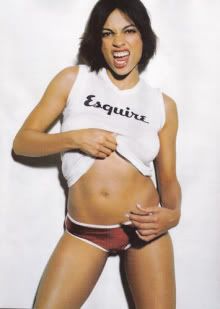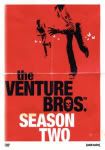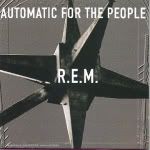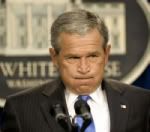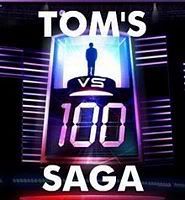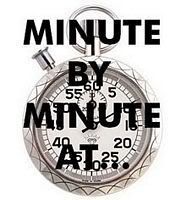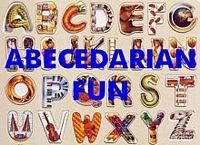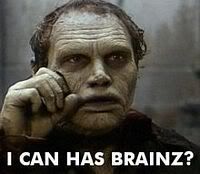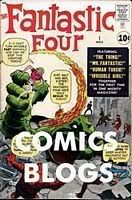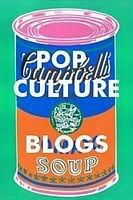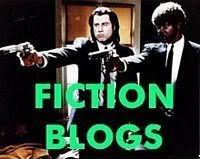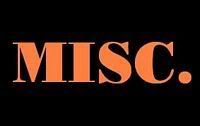MOVIES: House of Flying Daggers
I enjoyed House of Flying Daggers, but I couldn't help but feel it was a let-down from director Zhang Yimou's previous film, Hero (which I thought was the 2nd best movie of 2004). Partially, I'm sure, this is because I saw it on DVD, rather than the big screen. The visuals in House of Flying Daggers are still breathtakingly stunning on TV, but it's only on a movie screen (as I found with Hero) that the images have the power to totally absorb you, to surround you and transport you completely into their world of awesome beauty.
But, aside from my particular viewing experience, the movie simply doesn't measure up to its predecessor. It lacks the epic scope of Hero; it often feels small, in story (basically, a journey to and from the HQ of the House of Flying Daggers, a group opposing the corrupt government -- with martial arts battles and a love triangle along the way), elapsed time (almost the entire last half of the film takes place within just a few hours, which, in this kind of film, is a very brief span), and in population (there are only four characters of any significance in the film, and that's being generous to the fourth character). Well, it's not meant to be an epic, you say. I disagree: for us to grant the necessary emotional weight to the love triangle at the center of the film, for the operatic triumphs and tragedies of love to resonate, it has to be an epic, a romantic epic, giant in scale in all aspects. And it didn't feel that way to me. The story is still touching, but in more of a high school romance (with bamboo spears) kind of way, rather than a Shakespearean kind of way.
The battle scenes also suffer in comparison to Hero (after all, it is one of the greatest martial arts showcases of all time), but only slightly. They're still magnificent to behold, graceful and balletic and wonderfully impossible, poetic almost in their inventiveness and beauty. Two scenes are true stand-outs, among the best of their kind ever filmed: the "echo" game, in which a delicate dance turns into an assassination attempt, and the bamboo forest, in which soldiers scurry through treetops hurling makeshift bamboo spears at their targets.
My biggest complaint about the film, though, would have to be the missing ending. The plot, what little of it there is, involves government forces looking to find and destroy the House of Flying Daggers rebels. At the end of the film, the soldiers have located the House, and are preparing to attack. But the members of the House are aware that the soldiers have found them, and plan an ambush attack of their own. And this results in: nothing. Nothing! Literally absolutely nothing. The last we see of this is the soldiers stealthily approaching the hideout, swords held high. And we never go back there again. The rest of the film involves the violent resolution of the love triangle, but there is no resolution to the fate of the House of Flying Daggers. Sure, why should we care what happens with them? It's not like the freaking movie is named House of Flying Daggers or anything.
But you know me: I like to complain. Those quibbles aside, I thought this was an excellent movie. Certainly I have no cause to complain about the performances. Zhang Ziyi, who was the fourth lead in Hero, is the central character in HoFD, and that's right where she should be, center stage at all times. She's just ridiculously gorgeous, with grace and poise far beyond her years. She plays Mei, a blind dancer secretly working for the House of Flying Daggers. Takeshi Kaneshiro plays Jin, a member of the police force, who goes undercover to break Mei out of prison in order to get her to lead him back to the Flying Daggers headquarters, and who falls in love with her on the way. And Andy Lau is Leo, Jin's partner and contact along the journey, who warns Jin not to lose sight of his mission. All of them carry secrets which will lead to pain.
All the actors are fine in their roles (Zhang Ziyi especially so), but the film is less about them and their story and more about their battles, and the colorful and creative backdrops against which they play out. In a climactic sword fight, for example, the scenery turns from a fiery orange and yellow autumn to an all-white, snow-covered winter in a single minute. The use of color throughout the film is fascinating and unique, from the autumn reds and winter whites mentioned above to the overwhelming green, green, green of the House of Flying Daggers.
And, as I've already said, the fight scenes are amazing, lightning-fast choreography mixed with gravity-defying wire-work (which frankly is growing less impressive the more it's used, even though it still does its job here) and some CGI imagery (used with certain projectiles, like the bamboo spears, Jin's arrows, and a great many daggers which, true to the title, perform some unlikely feats of flying). Some of the more memorable sequences involve a sword wielded by a piece of cloth, four arrows striking their targets simultaneously to devastating effect, and Leo's slow-motion tackle of Mei into a pool of water. The fights are thrilling action spectacles, but they're also works of art.
I wish I had seen this in the theaters, but I was happy enough to see it on DVD. It's one of the best films I've seen this year.

